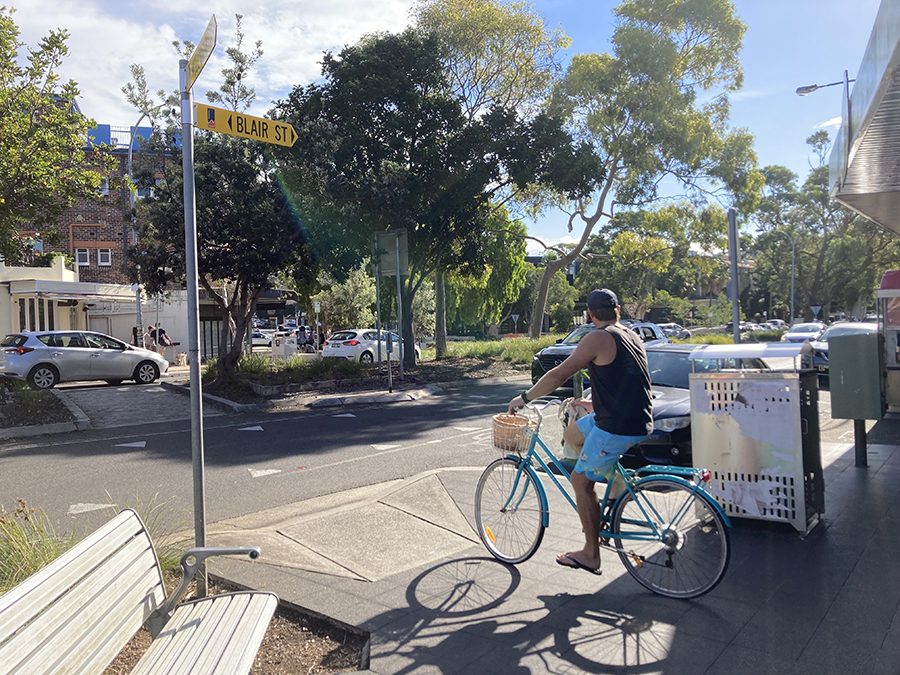- Home Home
-
Residents
Residents
- Waste & recycling Bins, clean-ups and disposing of tricky household items
- Parking Permits, car parks, maps and safety
- Your trees, plants & garden Tree pruning, native gardens and Living Connections
- Neighbourhood issues Report and resolve common issues
- Pets Dog and cat ownership, lost animals and off-leash parks
- Precinct committees Your local connection to Council
- Waverley LGA Maps Maps of the environment, planning zones and more
- Payments Pay for rates, certificates, permits and licences
-
Community
Community
- Children, youth & family services Early education, day care, support & resources
- Awards & grants Local Hero Awards, Garden Awards, Small Grants
- Get involved in your community Volunteering, creating connections, gardening
- Over 60s Services, activities, Mill Hill 60+ program
- Housing & homelessness Affordable housing, programs & support services
- Cultural diversity & inclusion Multiculturalism, language help, citizenship
- Aboriginal & Torres Strait Islander people Commitment to Reconciliation, plans & policies
- Disability inclusion Support services, access & inclusion projects
-
Business
Business
- Resources for Business Events, grants and support
- Tourism Home to Australia's most famous beach.
- Sponsorship Support local events
- Procurement Submitting tenders & expressions of interest to Council
- Commercial waste & recycling services Tailored waste services for business
- Mobile vending Waverley has limited mobile vending licenses
- Footpath Seating Permits Submit your application
- Hello Bondi Council’s website to help visitors enjoy their stay
-
Recreation
Recreation
- Events Browse performances, exhibits and experiences
- Places of interest Historic buildings, markets, dining and Bondi Pavilion
- School Holiday Programs Fun-filled activities, workshops and events.
- Beaches & coast Beach information, safety, pool cleaning schedules
- Parks & reserves Location, public facilities and accessibility
- Arts & culture Artistic vision, creative programs, spaces and awards
- Venue & sport facilities hire Book indoor venues and sport facilities in Waverley
- Use of public spaces Events, commercial activations, filming etc
-
Environment
Environment
- Council leadership on environmental action Research, strategies and Council programs
- Climate resilience and reducing emissions Switch to electric, go solar and grants for apartments
- Water and the coast Keep beaches clean, save water and enjoy the sea
- Towards zero waste Reduce waste at home and at work
- Public tree management & urban greening Street Tree Masterplan and planting zones
- Native vegetation and animal habitat Join Bushcare and enjoy Waverley’s natural spaces
- Transport Council policy, bike and car share, electric vehicles
- Second Nature Council’s environmental news and events hub
-
Planning & Development
Planning & Development
- Development Applications The DA process, key documents & community consultation
- DA Tracking Tool Search a Development Application by number or date
- Application forms & certificates incl Planning, Rating, Construction and Occupation
- Waverley Local Planning Panel (WLPP) DA determination panel
- Compliance and regulations incl fire safety, food, pools and pollution
- Heritage incl Heritage Conservation Areas and fact sheets
- Urban planning and design Making Waverley a great place to live and work
- Major projects Council-delivered buildings, streets and parks
-
Council
Council
- Organisation structure Four directorates serve the community
- Mayor & councillors Your Mayor, Councillors, wards and contact details
- Council & committee meetings Dates, agendas and minutes of meetings of Council
- Advisory committees Advisory Committees of Council
- Policies, plans, strategies and reports Council's vision and delivery
- Jobs Current vacancies and working at Waverley
- Access to information Gaining access to publicly available information
- Payments Pay for rates, certificates, permits and licences
- Home
- >
- Environment
- >
- Towards zero waste
- >
- The circular economy
- Council leadership on environmental action
- Climate resilience and reducing emissions
- Water and the coast
- Towards zero waste
- Public tree management & urban greening
- Native vegetation and animal habitat
- Transport
- Second Nature
The circular economy
The circular economy is not only about avoiding waste, but rethinking whether anything is waste at all, or rather simply something we have not found a new use for yet.
“The circular economy is a system where materials never become waste and nature is regenerated. In a circular economy, products and materials are kept in circulation through processes like maintenance, reuse, refurbishment, remanufacture, recycling, and composting.” Ellen MacArthur Foundation.
Council’s yellow, blue and green bins are examples of the circular economy already in action. Elements of Council’s problem waste collection and drop-off program also see waste reused and recycled. More broadly, even Waverley Library is an example of a circular economy whereby goods are shared rather than purchased privately and potentially discarded.
As a starting point, the aim is to avoid buying items that will obviously become waste e.g. not bagging fruit and vegetables at the supermarket. Avoiding items going to landfill is a priority, but the circular economy is more than just finding another type of bin for items. Donating items is a well-known alternative, but also proactive reuse through initiatives such as the Repair Café, and even facilitating waste to go back into the earth through something as simple as compost.
Council has committed to make the circular economy more accessible at a local level and has set ambitious waste reduction targets as part of the Environmental Action Plan. In 2024 the first Thinker in Residence was appointed, with Regen Sydney moving into the new space at The Boot Factory to guide the development of regenerative activities and initiatives. Subscribe to the Second Nature newsletter for updates on this program.
Council has developed a Circular Economy Directory for Bondi Junction in collaboration with leading local businesses. You can use it to find places to repair, reuse, refill and recycle pre-loved items and stay 'in the loop'!

Recycled road and active transport


